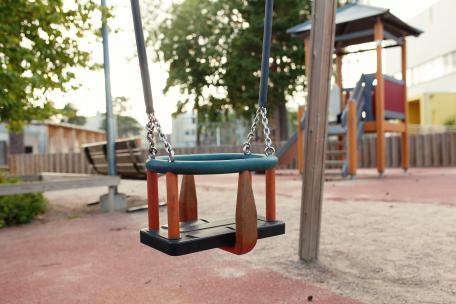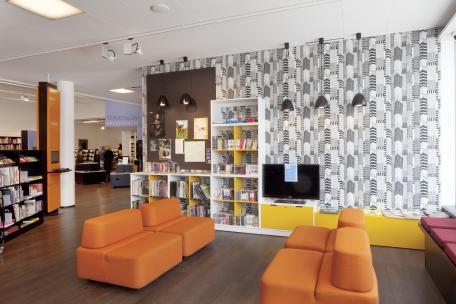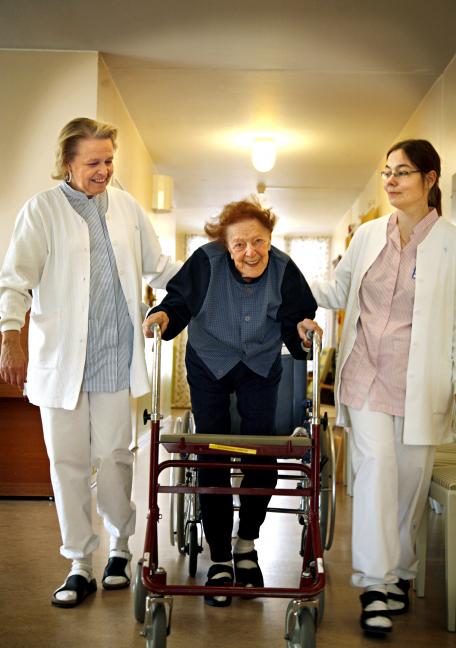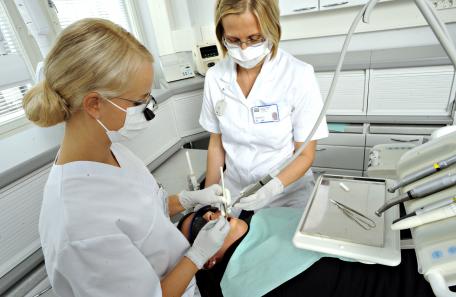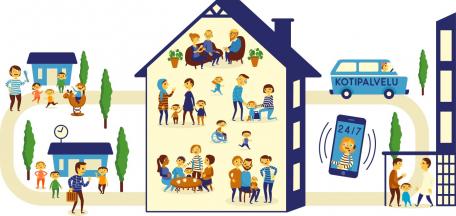Social Services and Health Care division
The effectiveness of recommendations
Action has been taken on 90% of the recommendations from the 2020 assessment report.
Read more about the effectiveness of the 2020 assessment report’s recommendations ›
Promoting the well-being of upper secondary school students
The Education Division has taken many steps to improve student well-being and increase their sense of community. However, the services of student welfare psychologists are not easily accessible, and there is a waiting list for further treatment.
Read more about promoting the well-being of upper secondary school students ›
Effectiveness of recommendations
The recommendations the Audit Committee issued in 2019 usually led to measures.
Read more about the effectiveness of the recommendations of the 2019 assessment report. ›
Achievement of binding objectives
51 per cent of the binding operation objectives were achieved. The prolongation of the COVID-19 pandemic has impacted the achievement of the objectives of the Education Division and the Social Services and Health Care Division in particular.
Read more about the achievement of the 2021 binding objectives ›
Adequacy of open child welfare services
The number of employees in the services of open child welfare is at its statutory level, but due to the increased challenges families face, all needs cannot always be addressed. Furthermore, child welfare has open vacancies for social workers, but the vacancies remain uncovered.
Read more about the adequacy of open child welfare ›
Home care for elderly citizens
Efforts have been made to develop home care in the last few years, but most of the objectives have not been achieved. Home care’s most prominent issue is the shortage of personnel. Linguistic equality is not realised due to the lack of Swedish-speaking nursing personnel.
Read more about the adequacy of home care ›
Mental health rehabilitees’ path from hospital care to housing
The city has strived to promote mental health rehabilitees’ access to housing services by turning the Aurora Hospital’s wards of rehabilitative psychiatry into housing units and by increasing the service selection of housing services in the competitive tendering of purchased services. However, the number of people on the waiting list for housing services has not decreased.
Read more about the housing path of mental health rehabilitees ›
Elderly patients in emergency services
Home care and service housing have introduced a guidebook for emergency situations and the mobile nurse service, but they are not utilised to their full potential. Closer cooperation should be established when discharging patients from hospital.
Read more about emergency services for elderly citizens ›
Sufficiency of Child Welfare foster care
Child Welfare is having challenges in meeting the increased need for foster care with family care and special and demanding institutional care.
Read more about Child Welfare foster care ›
Access to non-urgent care at health stations
Access to non-urgent care is provided at health stations mainly within the time limits prescribed by law, but not in accordance with Helsinki’s own objectives or in an equal manner.
Read more about access to non-urgent care ›
Achievement of environmental policy objectives in procurement
The environmental policy objectives set by the City Council in 2012 have not been fully achieved in the City of Helsinki’s procurement. Although environmental criteria have been set in several procurements with significant environmental impact in the past, more extensive development has only begun in recent years with the Carbon-neutral Helsinki 2035 action plan.
Read more about the achievement of environmental policy objectives in procurement ›
Substance abuse services
The Social Services and Health Care Division has developed the treatment of people with substance abuse problems and harm reduction services and lowered the threshold for access to services. Cooperation with other operators, particularly child welfare services, needs to be developed.
Read more about the assessment of substance abuse services ›
Impacts of enhancing the use of space
The results obtained on enhancing the use of space and changing the measures used for this purpose have varied in different services of the City. However, taking the views of customers and staff into account has been found to be important in facility alterations.
Read more about Impacts of enhancing the use of space
›
Electronic health care services
The electronic health care services are high quality, but not all residents of the municipality are able to use them. Because of this, the availability of traditional service channels must also be ensured in the future.
Read more about Electronic health care services
›
Direction provided to the City divisions by the City Executive Office, mayor and deputy mayors
With the introduction of the new management system and City division model, the controllability of the City organisation has improved. However, control and direction have become more fragmented, and there is a lack of clarity regarding who directs what.
Read more about assessment of the new management system ›
Quality control of 24-hour care of the elderly
The quality control of the 24-hour care of the elderly can be considered to be satisfactory in the City’s own service provision and sufficient in purchased services.
Read more about Quality control of 24-hour care of the elderly
›
Availability and productivity of oral health care services
The oral health care services of the City of Helsinki are high quality, but access to care has been difficult, particularly due to problems in making contact and the lack of non-urgent appointments.
Read more about Availability and productivity of oral health care services
›
Cooperation and multi-professionality at family centres
The family centre model has increased cooperation between different professionals according to the objectives. Family centre work is just beginning in several areas of Helsinki, and there are still needs for development.
Read more about Cooperation and multi-professionality at family centres
›
City Executive OfficeFinancial Management HelsinkiCulture and Leisure DivisionOccupational Health HelsinkiService CentreConstruction Services (Stara)Urban Environment DivisionEducation DivisionRescue Department
Social Services and Health Care division
Social Services, Health Care and Rescue Services DivisionHelsinki City Transport (HKL)


